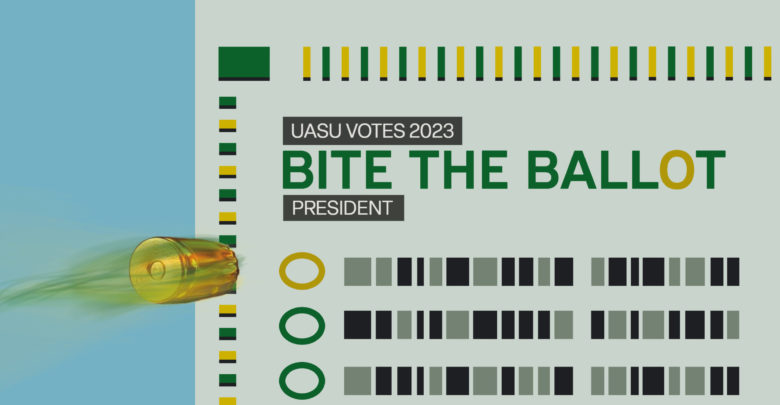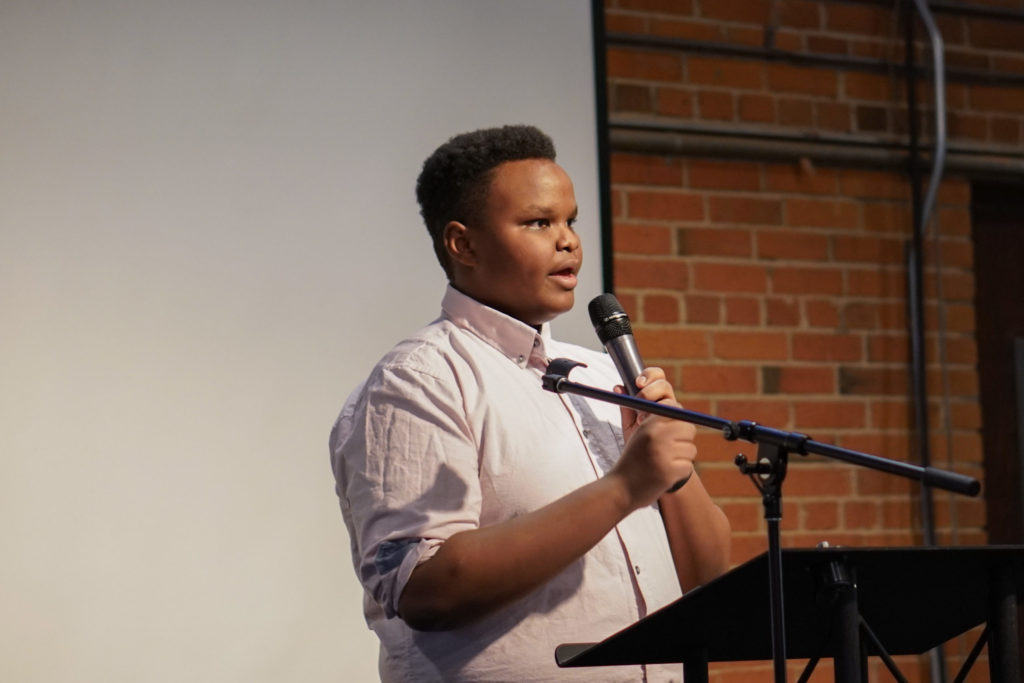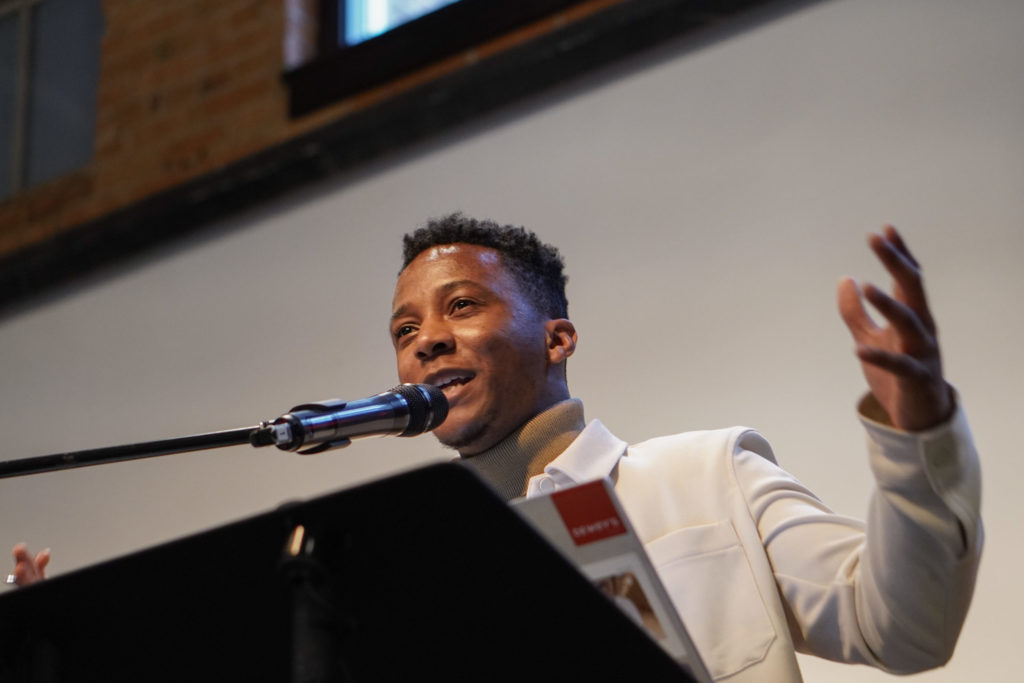 Arthur Macatangay
Arthur MacatangayUnlike many of the other races in the 2023 Students’ Union (SU) election, students can choose between two different approaches in the president’s race. This year, it was an exciting race to watch, especially with a three hour debate that was entirely focused on these two candidates.

Haruun Ali
Ali has approached this campaign with similar messaging to last year’s — he is the outsider with new ideas. While this was true a year ago, when he was just entering the SU sphere, it isn’t anymore. Before running in this race, Ali served as an arts councillor until December when he resigned. Plus, he is extremely vocal about his involvement in the SU on social media and in his advocacy.
His social media presence would be interesting to see in an SU president. In the past few weeks, Ali has garnered media attention into price-gouging at Canadian grocery stores. His online influence could amplify student issues and voices, if he used it as a tool to mobilize the student body. His presence has also gotten him an endorsement from local Edmonton affirmations account @yego.death — which shows his reach in the broader Edmonton community.
Right off the bat, however, I found Ali’s platform disappointing — it didn’t stand out compared to Fotang’s, and there weren’t concrete plans laid out to get goals done. To me, the only goals on Ali’s platform that felt feasible or actionable are the legacy projects, like the pronoun campaign and exploration credits.
Based on his speeches in the forums, I left feeling like Ali hadn’t done enough research leading up to his campaign. The most glaring to me was the mandatory Indigenous studies, which Ali put on his platform as a legacy project, even though current vice-president (academic) Gurleen Kaur has begun advocating for mandatory Indigenous content instead.
Ali’s main theme of making the SU a union was easily the most interesting part of his platform, but it ultimately fell short for me. I was hoping that his plans meant more radical action, like picketing or striking. He hinged his campaign on this idea, but didn’t expand on how he’d bring this to the university.
Throughout the forums, Ali continuously told students that the SU had failed them in their advocacy, often calling it ineffective. This is a dangerous game to play, especially when his plan hinges on student leaders being empowered to advocate effectively.
Above all else, the fact that Ali didn’t consult the Indigenous Students’ Union before launching his campaign deeply concerns me. Ali labeled himself as a voice for all of campus, but this can’t possibly true when you don’t consult whole groups, even before your campaign has started.
Ali is clearly passionate about helping students, but this isn’t enough for him to be a successful SU president. He has high hopes and big plans for the SU, but I think he’s unrealistic about what he would actually be able to change.

Christian Fotang
Fotang had a leg-up in this race from the beginning as this is his second term as current vice-president (external) (VPX). He came into the campaign with a clear understanding of where his power starts and ends, and what he’d actually be able to achieve.
Out of the two candidates, Fotang brought his A game when it came to his platform and campaign strategy. His social media posts followed a music theme, which featured endorsements from student leaders as streaming services, and a Genius-type interview going over his platform. This made his campaign engaging, and marketable, which set him apart from his candidate.
In the last year, Fotang has made significant strides in fighting for students, and has secured massive wins. He has the experience to meaningfully fight for students, and make long-lasting changes. As a result, most of his goals deal advocating to different levels of government and the university. This is a small concern to me, as his platform doesn’t feature many of the initiatives students have come to expect from the SU, like continuing the period equity initiative. Fotang has a tendency to not include things he believes are almost done, which makes it harder to hold him accountable.
To me, however, Fotang’s acknowledgment of where he needs to improve or focus his efforts shows that he has an acute understanding of the needs of students.
At the ISA forum, the presidential candidates were asked many questions about consultation with the ISA, tuition increases, and advocacy for international students. During his last term as VPX, Fotang has concentrated his efforts on advocated for affordability measures, with many successes, like the two per cent cap on tuition increases. Unfortunately, these measures, like the cap, don’t apply to international students.
Fotang acknowledged that there was still work to be done, and that his advocacy efforts didn’t always necessarily pay off — especially when it came to approved international tuition increases.
He showed his strengths best, however, in his questions and responses directed towards Ali. In his responses to pointed questions, Fotang had tactful answers, and responded well under-pressure. Even his pointed questions were well-researched and thought out — he came prepared, and held his opponent accountable. I believe this is a sign that Fotang will be able to stand up against administration and continue the fight for students.
Who should win, and who will win?
At a base level, both presidential candidates have similar ideas in what they want to focus on if they get elected. But, their similarities end with how they’ll approach the presidency.
I believe Fotang will win the president’s race. He’s had an engaging campaign that appeals to students, and has come to forums much more prepared than Ali. In all his responses, Fotang has been the most articulate and succinct, and he outlines his ideas clearly.
I think that Fotang should win, as out of the two candidates, he seems the most prepared for what the position entails. He knows what students need, and doesn’t try to speak on their behalf. In forums, Fotang appealed to students the most with his passion and charismatic speeches. As a provincial election looms and students combat the cost of living crisis, I think Fotang’s experience as VPX makes him the better candidate.




